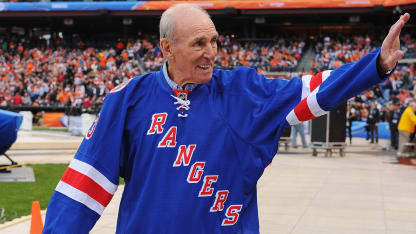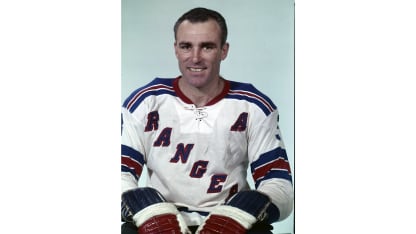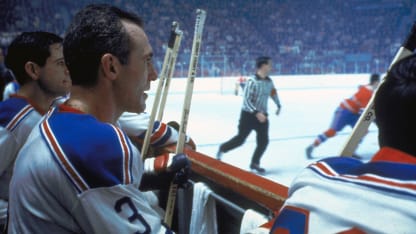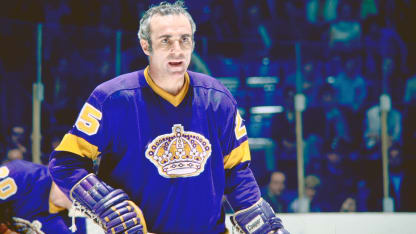"The pride of Hamilton, Ontario, Howell was humble and kind. He and his beloved wife of 64 years, Marilyn, who passed away last month, were pillars of the communities in which they resided. We send our deepest condolences to the Howell family as they -- along with the entire hockey world -- grieve the loss of a universally-admired player and gentleman."
Rangers president Glen Sather said, "Today, the New York Rangers and the hockey world are saddened to hear of the passing of legendary Blueshirt, Harry Howell. One of the most iconic players in franchise history, Harry's Hall of Fame accomplishments on the ice were exceeded only by the tremendous gentleman he was off the ice. I was privileged to have worked with Harry for over a decade in both Edmonton and New York and treasure our memories together.
"The entire Rangers organization sends our most heartfelt condolences to the Howell family who recently lost Harry's beloved wife Marilyn, just a few weeks ago. They will always remain in our hearts and forever be a part of our Rangers family."
Howell was big for his era at 6-foot-1 and 195 pounds, but Howell wasn't aggressively physical; rather, he used his hockey sense and positioning to become an effective player on a franchise that was struggling to recapture the glory it had enjoyed before World War II. Though his style of play sometimes earned boos from the fans at Madison Square Garden, Howell was a solid player who was content to make the safe play rather than go for the big hit.
"Hockey is a game of mistakes, and Harry doesn't make many of them," said Emile Francis, his general manager and coach with the Rangers in the 1960s.
Howell wasn't a big offensive contributor until 1966-67, his 15th season in the NHL, when he had a career year with 12 goals and 40 points for the resurgent Rangers, who made the Stanley Cup Playoffs for the first time in five seasons. Howell's performance earned him the Norris Trophy as the NHL's top defenseman, making him the final winner of the Original Six era and the last before Bobby Orr's eight consecutive wins.
Howell said years later that he got some help that year from a fellow future Hall of Famer, forward Bernie "Boom Boom" Geoffrion.
"That year I scored more goals than I ever had before," he said. "Part of the reason was that I was playing the point on the power play with Boomer. When I passed to Boomer, he'd send it back to me and say, 'You shoot it.' That was funny because Boomer was one of the first guys to use the slap shot a lot."
Howell also became the first member of the Rangers to be honored by the team with his own night. The Rangers held "Harry Howell Night" at the old Madison Square Garden on Jan. 25, 1967.
"The fans were always great to me," Howell said.







